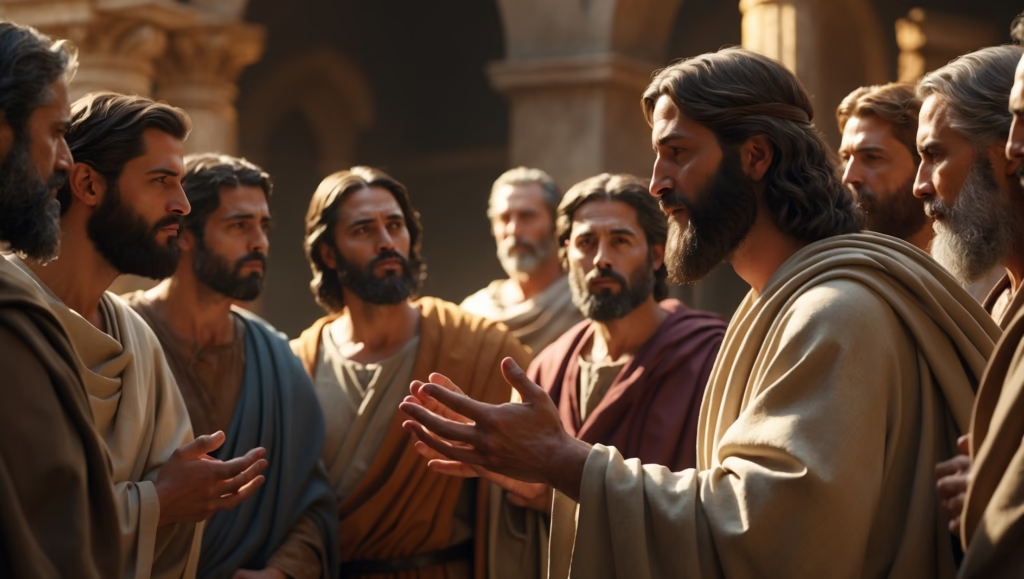Introduction
Throughout history, leadership has often been associated with power, authority, and control. Leaders are expected to command, dictate, and assert dominance to achieve their goals. Yet Jesus turned this notion on its head. His leadership style was revolutionary, rooted not in self-interest but in service, humility, and empowerment. In a world obsessed with status and hierarchy, Jesus demonstrated that true greatness is measured by the willingness to serve others, sacrifice for them, and guide them with wisdom. His model of servant leadership provides a timeless blueprint for anyone seeking to lead with integrity and purpose.

Leadership Through Humility
Perhaps the most striking example of Jesus’ humility is found in His washing of the disciples’ feet (John 13:1–17). In a culture where foot washing was reserved for the lowest servants, Jesus, the teacher and Lord, stooped to perform this menial task. This act conveyed a powerful lesson: leadership is not about elevating oneself above others, but about valuing and serving them.
Through this example, Jesus redefined authority. His disciples were confronted with the paradox that true leaders do not seek recognition or accolades, but prioritize the needs of those they serve. Humility became the hallmark of His leadership, demonstrating that greatness is inseparable from service. Even in modern contexts, leaders who prioritize humility inspire trust, loyalty, and collaboration, reflecting the model Jesus exemplified.
Leadership Through Sacrifice
Jesus’ leadership was inseparable from sacrifice. Unlike worldly rulers who often lead for personal gain, prestige, or control, Jesus gave Himself fully for the benefit of others. The ultimate demonstration of this sacrificial leadership was His willingness to lay down His life on the cross (John 10:11).
This act of selfless love underscores that servant leadership is not merely a philosophy but a lifestyle that may require personal cost. By putting the welfare of others above His own, Jesus modeled a leadership ethic centered on responsibility, care, and moral courage. Sacrificial leadership is countercultural; it challenges leaders to prioritize collective good over individual ambition, and it transforms followers by showing that they are valued and supported.
Leadership Through Teaching
Jesus’ leadership was also profoundly pedagogical. He did not merely issue commands or exert authority through fear; He taught. Through parables, sermons, and one-on-one instruction, Jesus guided His disciples into understanding God’s kingdom, the principles of love, justice, and righteousness, and the purpose of their calling.
Teaching as leadership empowers people with knowledge and discernment. Jesus’ leadership through instruction provided His followers with tools to make decisions, understand their mission, and extend His work beyond His earthly ministry. By equipping others with understanding rather than relying solely on positional authority, Jesus demonstrated that leadership is most effective when it cultivates growth, autonomy, and wisdom in others.
Leadership Through Empowerment
Empowerment was central to Jesus’ leadership. He did not hoard power or control every aspect of His movement. Instead, He entrusted His disciples with responsibility, commissioning them to teach, heal, and spread His message (Matthew 28:18–20). This delegation of authority highlights a core principle of servant leadership: true leaders develop other leaders.
By empowering His followers, Jesus ensured that His mission would continue beyond His physical presence. He trusted His disciples to make decisions, confront challenges, and carry His teachings into the wider world. This aspect of His leadership teaches modern leaders the importance of mentorship, delegation, and the creation of sustainable systems where others are equipped to succeed and grow.
Application for Today
The principles of Jesus’ servant leadership are as relevant today as they were two millennia ago. In corporate, political, and social contexts, leaders often face the temptation to prioritize personal advancement or control. Yet Jesus’ example demonstrates that enduring influence and impact come from humility, sacrifice, teaching, and empowerment.
Leaders can learn from His example by placing the needs of their teams above their own, investing time in guiding and mentoring others, and creating opportunities for people to flourish. Servant leadership fosters trust, cultivates loyalty, and encourages collaboration, producing results that are sustainable and ethically grounded. Moreover, it aligns leadership with a higher purpose, motivating teams to pursue shared goals that transcend personal ambition.
Leadership as a Transformational Model
Jesus’ leadership style is transformational in nature. He inspired change not through coercion or fear, but by modeling integrity, compassion, and vision. His approach shifted the hearts and minds of His followers, motivating them to adopt values of service, sacrifice, and justice. Unlike transactional leadership, which focuses on exchange or reward, Jesus’ model is relational and purpose-driven, producing long-lasting transformation in both individuals and communities.
By integrating humility, sacrifice, teaching, and empowerment, Jesus created a culture of trust and shared responsibility. His leadership demonstrates that the most profound influence occurs not when people are commanded, but when they are inspired, valued, and equipped to contribute meaningfully.
Conclusion
The leadership of Jesus challenges conventional notions of power and authority. He demonstrated that true greatness is not measured by titles, control, or status, but by the willingness to serve, sacrifice, teach, and empower others. His servant leadership redefined influence, showing that humility and care create lasting impact.
For modern leaders, whether in business, ministry, or community life, Jesus provides an enduring model. His life teaches that leadership rooted in service transforms individuals, strengthens teams, and advances missions in ways that self-serving authority cannot. By embracing Jesus’ approach, leaders can cultivate environments of trust, collaboration, and purpose, leaving legacies that reflect the highest ideals of leadership.
The servant leadership of Jesus reminds us that the greatest leaders are those who put others first, not last, and who lead with both heart and vision. His example continues to inspire, guide, and challenge leaders to serve with humility, act with integrity, and empower others to fulfill their potential.








